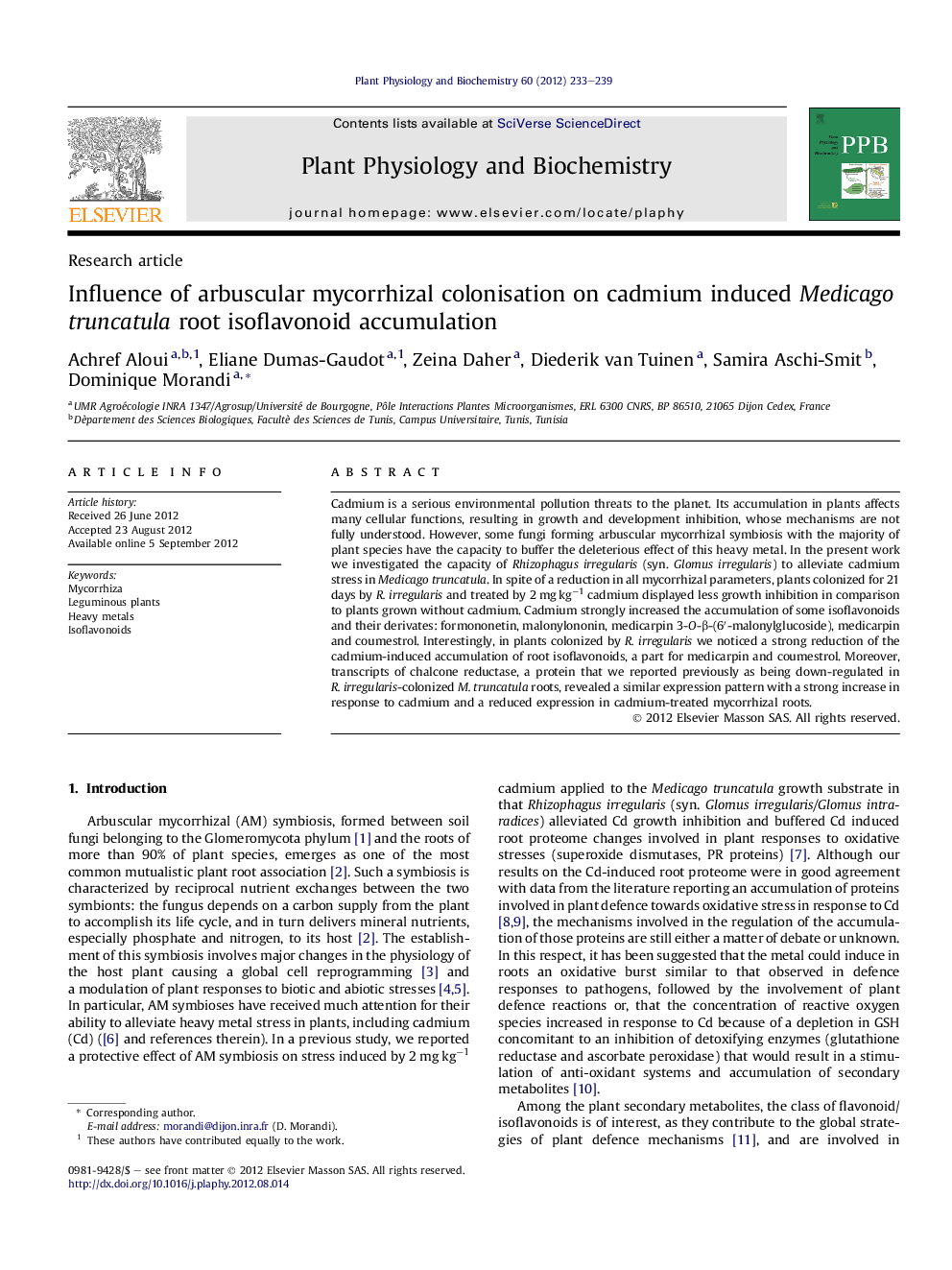| Article ID | Journal | Published Year | Pages | File Type |
|---|---|---|---|---|
| 2016148 | Plant Physiology and Biochemistry | 2012 | 7 Pages |
Cadmium is a serious environmental pollution threats to the planet. Its accumulation in plants affects many cellular functions, resulting in growth and development inhibition, whose mechanisms are not fully understood. However, some fungi forming arbuscular mycorrhizal symbiosis with the majority of plant species have the capacity to buffer the deleterious effect of this heavy metal. In the present work we investigated the capacity of Rhizophagus irregularis (syn. Glomus irregularis) to alleviate cadmium stress in Medicago truncatula. In spite of a reduction in all mycorrhizal parameters, plants colonized for 21 days by R. irregularis and treated by 2 mg kg−1 cadmium displayed less growth inhibition in comparison to plants grown without cadmium. Cadmium strongly increased the accumulation of some isoflavonoids and their derivates: formononetin, malonylononin, medicarpin 3-O-β-(6′-malonylglucoside), medicarpin and coumestrol. Interestingly, in plants colonized by R. irregularis we noticed a strong reduction of the cadmium-induced accumulation of root isoflavonoids, a part for medicarpin and coumestrol. Moreover, transcripts of chalcone reductase, a protein that we reported previously as being down-regulated in R. irregularis-colonized M. truncatula roots, revealed a similar expression pattern with a strong increase in response to cadmium and a reduced expression in cadmium-treated mycorrhizal roots.
► Rhizophagus irregularis is able to alleviate cadmium stress in Medicago truncatula. ► R. irregularis reduced the growth inhibition of cadmium treated plants. ► R. irregularis caused a strong reduction of cadmium-induced root isoflavonoids. ► It is the first study of isoflavonoids in mycorrhizal heavy metal stressed plants.
